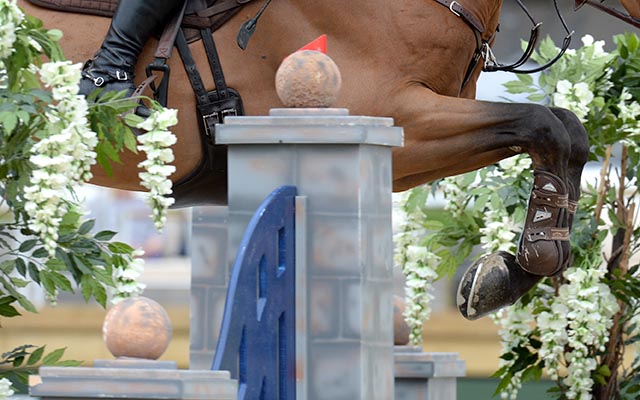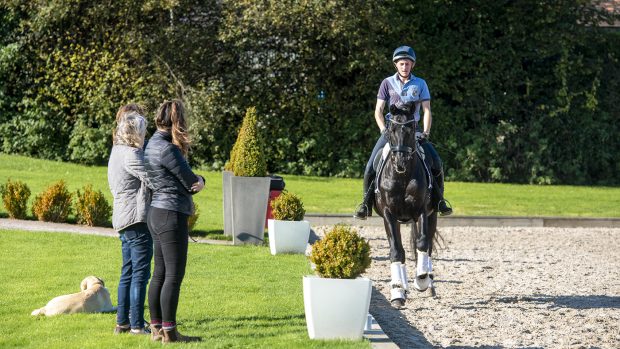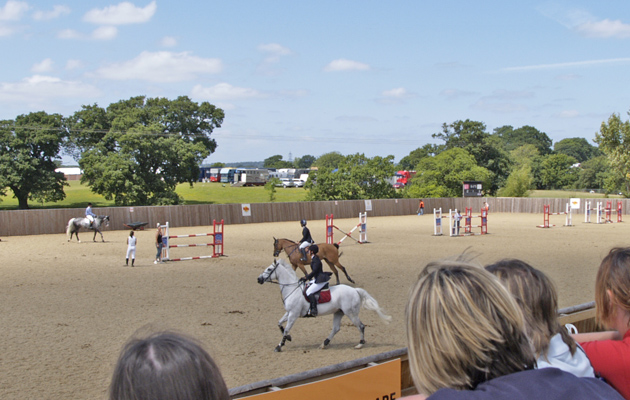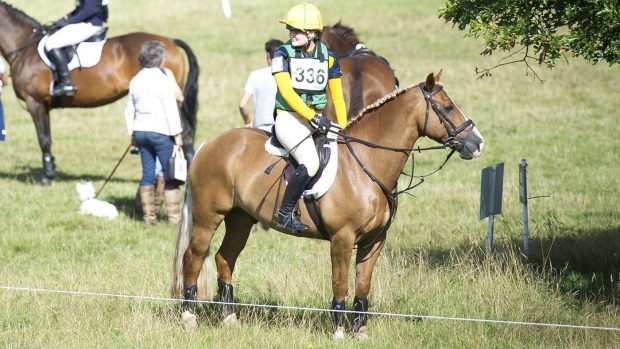We all know riding is inherently challenging. Trying to get both human and horse, with their independent brains, to work together can be incredibly difficult and the variables affecting that partnership and performance is vast.
While we can control how much money and time we spend on fitness, training and equipment, what do you do as a rider when your mindset starts to fail you and negative thinking sets in?
“Quite often it can be a particular negative experience that triggers these debilitating thoughts — having a fall, experiencing a bad jump, getting the striding wrong or incurring injury,” says sport and performance consultant Camilla Henderson.
“However big or small, riders can overcome these challenges through the use of core mental skills and strategies, helping them to use effective coping strategies in order to achieve their optimal performance at home or in competition.”
Camilla Henderson and Zoe Taylor, performance psychologist at Taylored Mindset, give their advice on how to stop negative thinking impacting your performance:
1. Don’t be afraid to ask for help
Seeking psychological help doesn’t mean there is something wrong with you, it’s a method which helps you conquer your fears and allows you to be the best you can be.
“Essentially sport psychology is about retraining your brain to think differently,” says Zoe. “It need not be a route to take when we have become unstuck, it can also be used proactively to overcome challenges or fears before you get to that point.”
2. Identify your fears/challenges/struggles
It’s important to know and understand yourself and be aware of your strengths and weaknesses.
Ask yourself the following questions: what are your challenges? Why and when did this become a challenge? How do these challenges affect your performance?
Some common struggles and challenges are:
- Fear of injury
- Worry over others’ judgements and opinions
- Self pressure
- Negative thinking
- Fear of letting significant others down
- Pressure to succeed when riding ‘good’ horses
- Pressure to perform well to be able to show people on social media
3. Find ways to combat your fears/challenges/struggles
Once you have identified the areas which you are finding difficult then you can strategically look at how you overcome them.
Practice makes perfect but it is hard to replicate the competition environment at home. However, look for ways in which you can add pressure to your training environment.
“For example in a training session you can set yourself mini targets such as ‘at 5pm I am going into the arena and I’m going to ride the test regardless of what happens,’” says Camilla, who as well as specialising in equestrian psychology is also Swindon Town Football Club’s sports psychologist.
“Asking someone to video the test and promising to upload it to your Facebook page afterwards is a way of applying a bit more pressure to the situation.”
4. Control the controllables
Focus on what you can control, not what you can’t. Don’t waste time worrying about variables like the weather or whether you are going to get your striding right at a particular fence, put all your energy into the processes that are in your control.
“Have a good structure in place on competition day,” says Camilla. “Put together a routine that works for you and use it. It will take time to harness but keep working at it so you know you have everything covered and have confidence in your own processes, we call this ‘power in the process’.”
5. Learn to minimise worries and prepare how you manage them
If you worry about letting your mum/partner/trainer down then have a conversation with them about it.
Often the pressure or fear hasn’t come from them at all but from what you perceive them to want. A conversation can alleviate much of that worry.
“It is critical for us to understand the power of perception. It is how we perceive and interact with our environment that effects how we respond physiologically, which ultimately affects our behaviour,” says Zoe, who also designs and implements the academy psychology programme at Harlequins Rugby.
“By taking ownership and gaining clarity of our processes, we can start to build confidence in the process, which means that we can control our perceptions and ultimately control our physiological response to a potential stressor, such as “that trakehner” or “that tricky dressage movement” or simply “opening gates on hacks”.
6. Set a variety of goals
Ahead of each competition establish your dream goals, realistic goals and goals that you are content with so you can manage expectations.
7. Evaluate and reflect
After each competition ask yourself what you have learnt, remembering to list positives as well as negatives. Don’t always focus on what went wrong, ensure you spend time thinking about what worked well, however minor it is. Keep a reflective diary to help build a picture of your thoughts and behaviours which over time can enable you to identify patterns. Finally, it’s important to remind yourself of your motivation for competing. It should be for authentic reasons such as you are passionate about it and enjoy it, not for unauthentic or egotistical reasons like you are trying to please your parents or trainer. So go out, enjoy yourself and have fun!
Find out more
Camilla Henderson and Zoe Taylor hosted ‘Developing Your Peak Performance,’ the first in a series of sports psychology workshops aimed at individuals from all equestrian disciplines at Oaksey House in Lambourn earlier this month. Part two will be hosted in May, details to follow on their Facebook/Twitter pages. For more information visit tayloredmindset.co.uk or camillahenderson.co.uk.
For all the latest equestrian news and reports, don’t miss Horse & Hound magazine, out every Thursday





